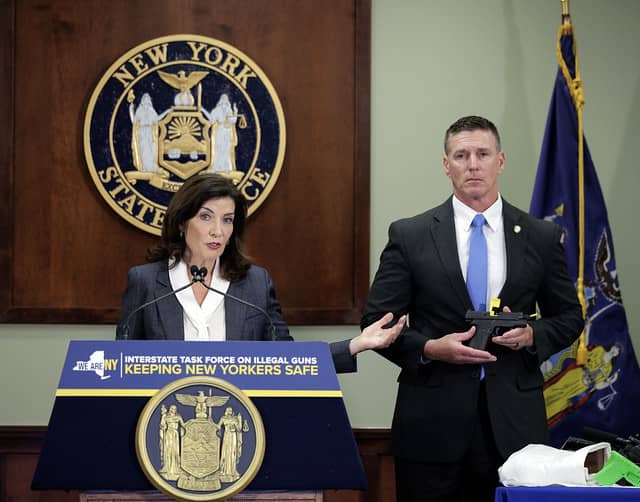The way firearms are tracked in the U.S. is often misunderstood. Many think there’s a national registry linking guns to their owners. This idea mostly comes from TV shows like CSI. When officers check a gun, they aren’t looking for an owner. They check a National Database of lost and stolen property to see if it has been reported missing. This helps know if the gun was stolen and if they need to return it to the rightful owner. It doesn’t tell them who bought the gun.
The confusion extends to buying guns from a Federal Firearms License (FFL) dealer. When someone buys a gun, they fill out an ATF Form 4473. This form records personal details and gun information. Before, this paper spread details across several pages, but now it’s on one page. This change, which happened a few years back, has raised eyebrows. Some people wonder if it’s a move towards a registry, though it’s not the case.
These records have to be kept by the gun store. Before the Bipartisan Safer Communities Act, stores could destroy these records after 20 years. Now, the rules have changed. Gun stores must keep them forever. If a store closes, its records go to the ATF headquarters. The law says these records must be stored indefinitely.
This rule change is part of broader efforts by the government. Some say it puts pressure on gun stores. They now have stricter rules on what counts as a willful violation. The push has resulted in many stores closing. When they do, their records end up centralized at the ATF. This makes it seem like a slow move towards more control over gun data.
The new regulations have sparked debate. Many say it protects communities by keeping better tabs on gun sales. Others argue it puts too much strain on businesses and infringes on rights. The conversation around gun laws in America remains heated and complex. The changes show how the government tries to balance safety with individual freedoms.
- HR38 Bill Introduced to Standardize Concealed Carry Nationwide in the US - January 12, 2025
- Oregon Challenges Court’s Rejection of 10-Round Magazine Ban Law - January 11, 2025
- Illinois Assault Weapon Ban Legal Battle Inches Toward Supreme Court - January 4, 2025




